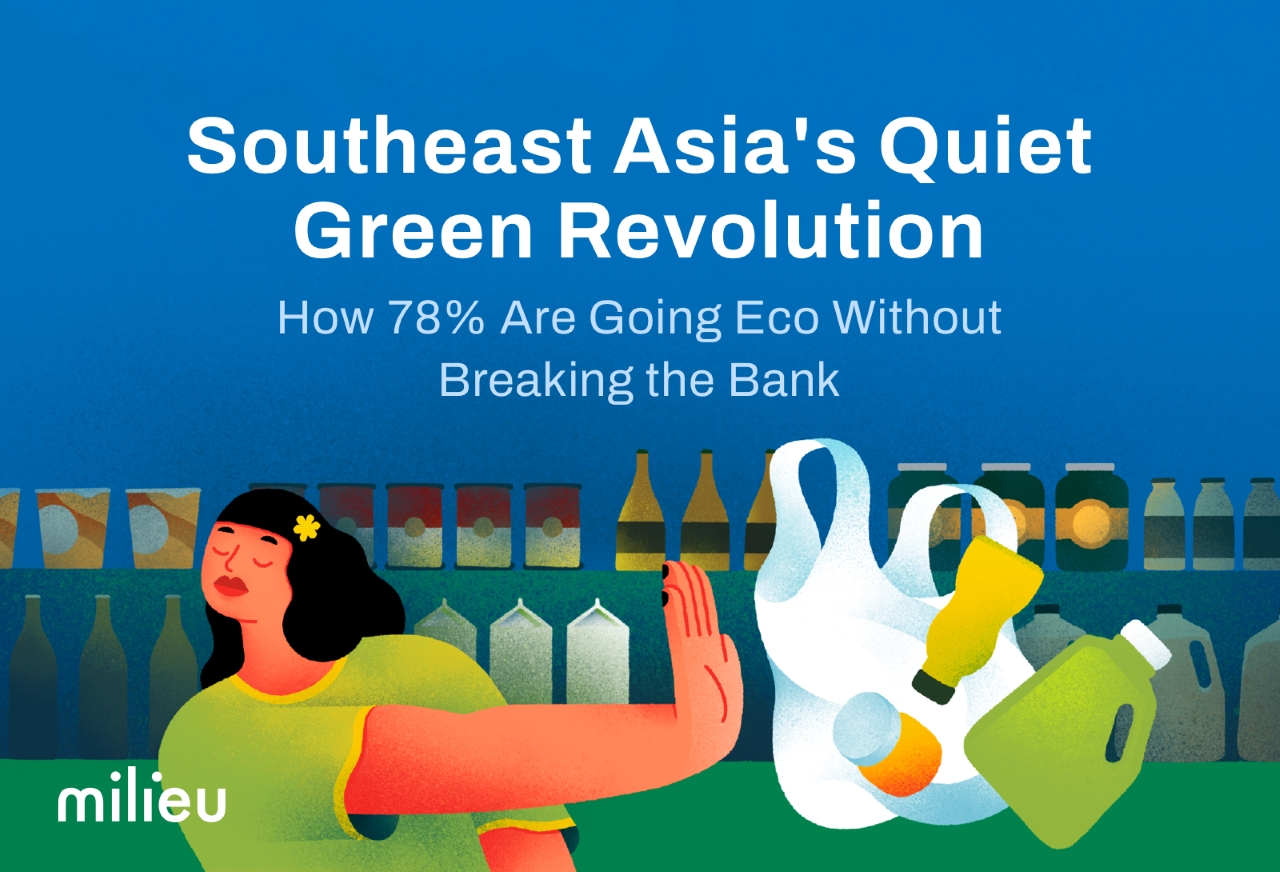6 in 10 SEA working moms struggle with work-life balance
.avif)
New survey findings from Milieu Insight reveal that 6 in 10 working mothers in Southeast Asia struggle to find time for both work and family commitments. Moreover, 68% believe that remote and flexible arrangements would enhance their chances of achieving work-life balance and career advancement, with 65% of working mothers in the region shouldering significant household responsibilities.
SINGAPORE, 8 May 2024 – Working mothers in Southeast Asia are increasingly having to learn time management techniques to balance professional and personal demands, according to Milieu Insight, a leading survey software company. In conjunction with Mother’s Day, Milieu Insight has published insights from its latest study on Southeast Asian mothers in the workforce.
While women in the workforce have received countless opportunities, they still face significant challenges. According to a McKinsey & Company report, women contribute about 36 percent of Asia’s GDP, in line with the global average. However, there are still opportunities for women to increase their economic contribution in the region.
The quantitative study, conducted by Milieu Insight’s proprietary survey community, polled 3,000 working mothers across Southeast Asia covering Singapore, Malaysia, Indonesia, Vietnam, The Philippines, and Thailand. “While women have contributed to Southeast Asia’s growth, their share of managerial positions remains below parity. Our study highlights the pressing challenges faced by working Southeast Asian women today, including the delicate balance between work and family commitments, self-care amidst hectic schedules, and the burden of guilt when prioritizing professional responsibilities. However, amidst these obstacles, it's heartening to know that working mothers in Asia employ various strategies to navigate the complexities of their personal and professional lives. As we celebrate the pivotal role of mothers in our society this Mother's Day, let us acknowledge and address their strength and sacrifices,” said Juda Kanaprach, Co-Founder and CCO, Milieu Insight.
A tough juggling act: work vs home
Working mothers in Southeast Asia are finding it tough to balance it all despite the changing world of work. Six in ten women in Southeast Asia struggle to find adequate time to manage both work and family commitments. Similarly, compared to other countries, data shows that American mothers combine work and family life in different ways; however, motherhood often disrupts employment, with full-time employment rates taking over a decade to return to 50%.
.png)
Self-care struggles
Alongside these challenges is the overwhelming burden of self-care due to the relentless demands of work and home life. Forty-two percent of Singaporeans and Vietnamese women report finding it increasingly difficult to prioritize their own well-being while juggling the competing demands of work and home, exceeding the regional average of 31%. The study also showed that 44% of those surveyed wish more people understood the difficulties they face as working mothers.
The lack of employee well-being policies and practices in Southeast Asia to support a healthy work-life balance is much-needed, with 53% of working mothers surveyed feeling neutral or dissatisfied with their country’s maternity leave policy. Providing adequate resources for self-care and promoting a culture of wellness can help alleviate the strain on working mothers and contribute to their overall job satisfaction and productivity.

Impact on career
One in five working mothers across Southeast Asia feels that being a mother has had an adverse impact on their career, with the highest percentage being in Singapore at 40%. This trend may correlate with the fact that 66% of working mothers in the region shoulder significant household responsibilities, including childcare, cleaning, and cooking. While Singapore boasts a relatively lower percentage of women solely responsible for household maintenance (19%), the stark contrast is evident in Indonesia, where 43% of women shoulder this responsibility alone.
Flexible work solutions
Fifty-five percent of working mothers in Southeast Asia currently adopt innovative time management techniques to navigate the intricacies of work-life integration. With Singapore implementing new flexi-work arrangement guidelines, including a 4-day work week option starting from December 1, 2024, this new approach offers a progressive approach towards flexibility at work, empowering mothers to take more control over their schedules. Sixty-eight percent of working mothers in Southeast Asia believe remote work and flexible arrangements would enhance work-life balance and career growth, with the majority in Singapore (75%) and the Philippines (77%) sharing this sentiment.

Need for extended leave
About one in two working mothers in Southeast Asia have had to extend maternity leave or use unpaid leave to care for their children, with Vietnam having the highest percentage (59%). Fifty-four percent of working mothers in Singapore wish for extended leave policies to better support working mothers despite paid maternity leave being capped at 16 weeks in Singapore. However, there is a lot of stigma around mothers who take time away from work, with some companies penalizing parents who take maternity leave.

Milieu Insight's research suggests that with inclusivity, flexibility, and support, workplaces can create a nurturing environment where women could excel in their professional roles while fulfilling their duties as mothers. This study, conducted via Milieu Insight's proprietary survey community, offers a comprehensive understanding of Southeast Asian women at work, highlighting key insights and behaviors. Fieldwork was carried out from 2nd to 12th April 2024.
Latest Insights


.avif)



